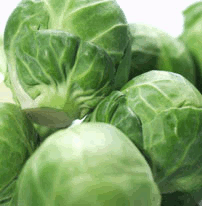


Are wine and coffee dehydrating?
The research on wine, coffee and dehydration is quite surprising. With alcohol-containing drinks, the common belief that alcohol consumption results in dehydration is fully supported by scientific research. When we consume an alcohol-containing drink, the alcohol level in our bloodstream can rise very rapidly. When our blood alcohol level rises, a metabolic regulatory mechanism kicks in and our pituitary gland stops releasing one of the hormones that it stores up - a hormone called antidiuretic hormone, or ADH. When release of ADH is blocked, our kidneys know to start increasing the release of water from our body in the form of increased urination. Unless we compensate for this increased loss of water, we will become partly dehydrated. The metabolism of alcohol can also interfere with our water balance in other ways - all of them pointing in the direction of increased dehydration. Dehydration is one common contributing factor to hangovers.
Of course, there are enormous differences in the amount of alcohol that a person can consume. People vary in their ability to metabolize alcohol, and the amount of dehydration caused by a specific amount of alcohol will vary from person to person. However, for any given person, larger amounts of alcohol always cause greater dehydration than smaller amounts (just as you might expect). We haven't seen any research whatsoever to determine exactly how much additional water drinking would be recommended for different levels of alcohol consumption. However, we'd be surprised if a person needed to make much change in his or her total daily water intake to help offset the amount of alcohol contained in a 6-ounce glass of wine at dinnertime. The routine consumption of wine or beer, however, would definitely make it more important for a person to pay attention to daily water intake.
With coffee, the research findings are surprisingly different than most of us would expect. It's been a common assumption that coffee and alcohol are equally dehydrating, and that caffeine is the substance in coffee that causes additional loss of water (diuresis) from the body. However, thanks to some high-quality studies (especially in the area of exercise science), researchers have determined that coffee is not as problematic in terms of dehydration as commonly believed.
There are definitely differences in the ability of different people to metabolize caffeine. In general, however, low to moderate amounts of caffeine consumption do not appear to increase water loss very significantly. By "low to moderate," we mean a consumption level that keeps caffeine under 250 milligrams. A "standard" 8-ounce cup of coffee would usually contain at least half this amount, and in many cases would contain this entire amount. And a large, specialty coffee (like a 16-ounce "grande") might contain over twice this level.
The research on coffee is similar to the research on alcohol in demonstrating the increased problems with dehydration that occur with increased levels of intake. However, the coffee research shows much less risk of dehydration occurring at lower levels of caffeine intake. One problem in our culture, however, involves the increased volume of caffeine-containing beverages we consume. Although a standard, 12-ounce caffeinated soft drink might only contain 50 milligrams of caffeine, many individuals no longer purchase soft drinks in a 12-ounce can. Instead, they purchase a 16-ounce bottle. In addition, they may purchase a caffeine-boosted version of the soda, which contains 100 milligrams per 12 ounces instead of 50 milligrams. Under these circumstances, it's easy to see how caffeine intake could add up over the course of the day to a level that would result in dehydration.
If you are consuming either wine (or other alcoholic beverages) or coffee - or both - in substantial amounts on a regular basis, you definitely need to increase your water intake above the levels we recommend on our website, and you may also want to consult with a healthcare practitioner to determine if the total amount of these beverages is in keeping with your overall health needs.
For more information on this topic see:
References:
Armstrong LE. Caffeine, Body Fluid-Electrolyte Balance, and Exercise Performance. Int J Sport Nutr Exerc Metab. 2002;12(2):189-206.
Armstrong LE, Pumerantz AC, Roti MW, et al. Fluid, Electrolyte, and Renal Indices of Hydration During 11 Days of Controlled Caffeine Consumption. Int J Sport Nutr Exerc Metab. 2005;15(3):252-65. Gardner EJ, Ruxton CH, Leeds AR. Black Tea - Helpful or Harmful? A Review of the Evidence. Eur J Clin Nutr. 2006 Jul 19
Grandjean AC, Reimers KJ, Bannick KE, et al. The Effect of Caffeinated, Non-Caffeinated, Caloric and Non-Caloric Beverages on Hydration. J Am Coll Nutr. 2000;19(5):591-600.



